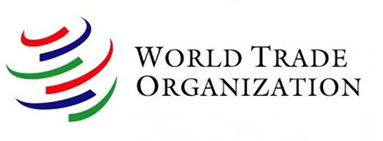- Books Name
- Understanding Economic Development Class-10
- Publication
- PathSet Publications
- Course
- CBSE Class 10
- Subject
- Economics
WORLD TRADE ORGANISATION
- World Trade Organisation (WTO) is an organisation whose aim is to liberalise international trade. Started at the initiative of the developed countries, WTO establishes rules regarding international trade, and sees that these rules are obeyed.
RULES AND REGULATIONS OF WTO
- Though WTO is supposed to allow free trade for all, in practice, it is seen that the developed countries have unfairly retained trade barriers. On the other hand, WTO rules have forced developing countries to remove trade barriers.

IMPACT OF GLOBALISATION ON INDIA:
- Globalization and greater competition among producers - both local and foreign producers - have been of advantage to consumers. There is a greater choice before these consumers who now enjoy the improved quality and lower prices for several products. As a result, these people today, enjoy much higher standards of living than was possible earlier.
- MNCs have been interested in industries such as cell phones, automobiles, electronics, soft drinks, fast food, or services such as banking in urban areas. In these industries and services, new jobs have been created. Also, local companies supplying raw materials, etc. to these industries have prospered.
- Secondly, several of the top Indian companies have been able to benefit from the increased competition by investing in newer technology and production methods and raising production standards. Moreover, globalization has enabled some large Indian companies to emerge as multinationals themselves. Example: Tata Motors (automobiles), Infosys (IT), Ranbaxy (medicines), Asian Paints (paints), etc.
- Globalization has also created new opportunities for companies providing services, particularly those involving IT.
- However, the growth is not parallel amongst all sections. Batteries, capacitors, plastics, toys, tires, dairy products, and vegetable oil are some examples of industries where the small manufacturers have been hit hard due to competition; This is because it is cheaper to import the same products rather than buying the domestic ones at higher prices.
- Globalization and the pressure of competition have substantially changed the lives of workers. Faced with growing competition, most employers these days prefer to employ workers ‘flexibly’. This means that workers’ jobs are no longer secure
STRUGGLE FOR FAIR GLOBALISATION:
- Fair globalization would create opportunities for all and also ensure that the benefits of globalization are shared better.
- The government can play a major role in making this possible. Its policies must protect the interests, not only of the rich and the powerful but all the people in the country. Example: Proper implementation of labor laws, using trade and investment barriers wherever necessary etc.
- People can also participate in this through massive campaigns.

 PathSet Publications
PathSet Publications
